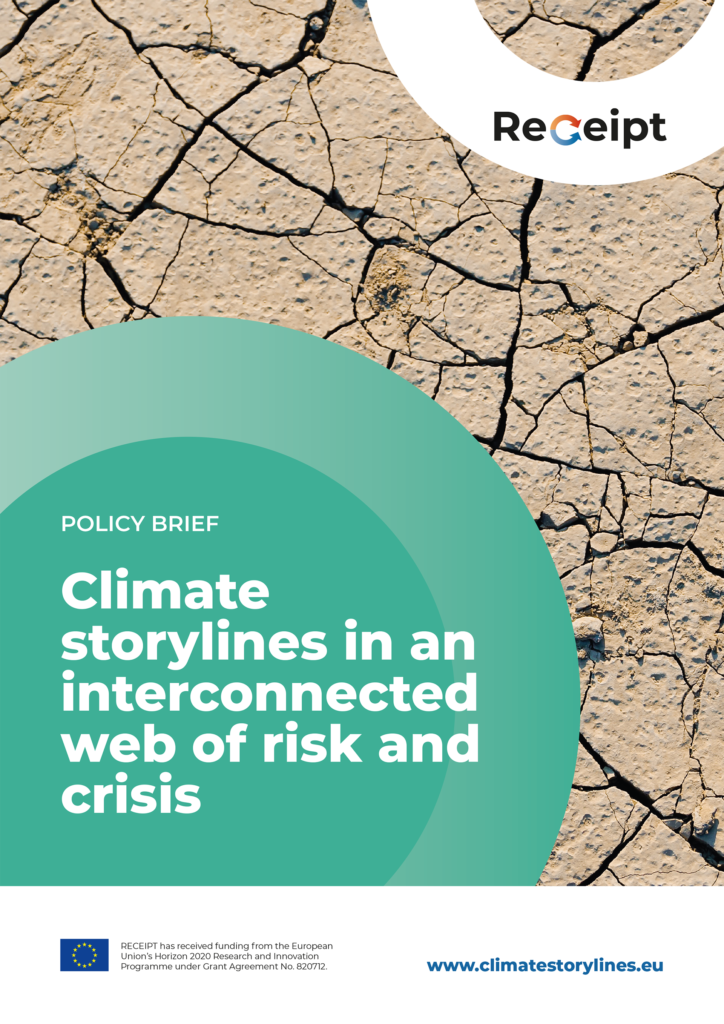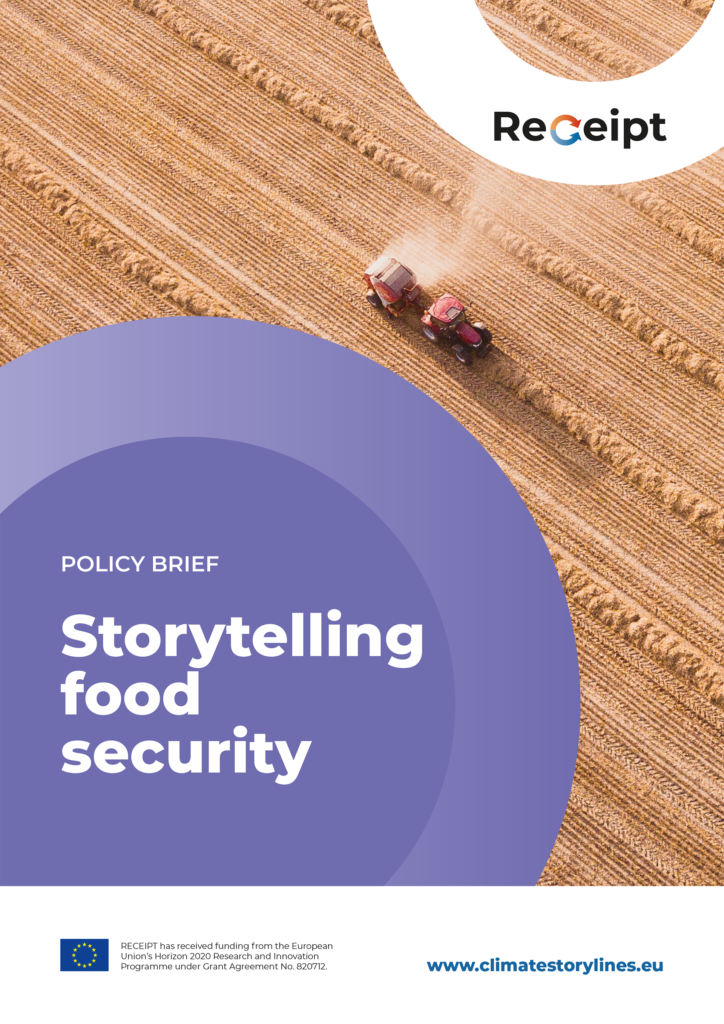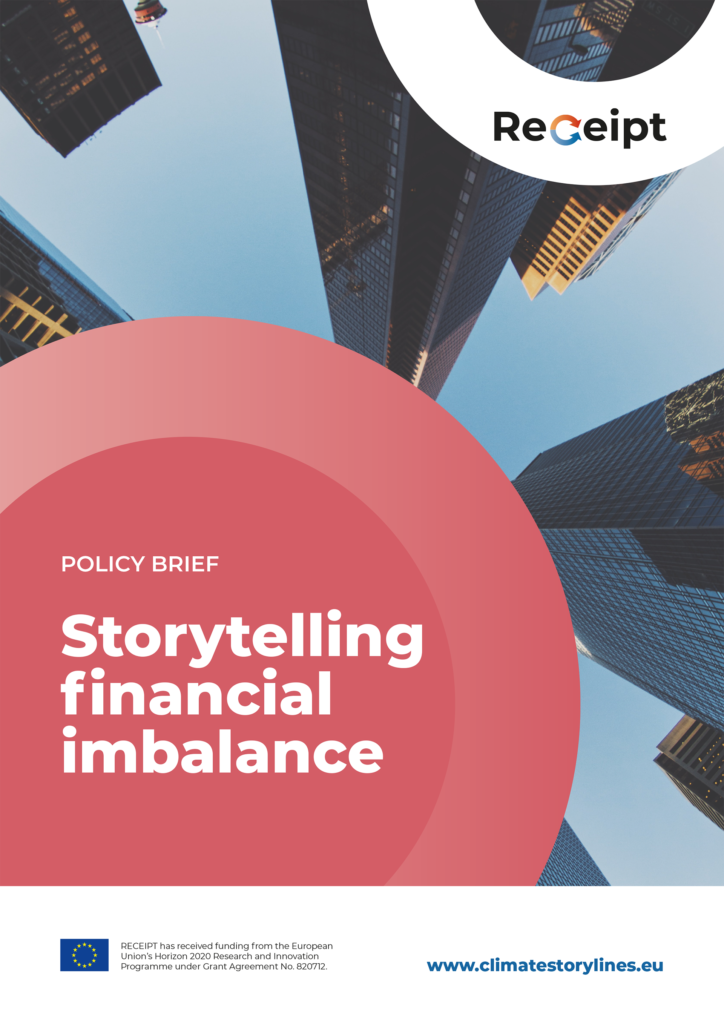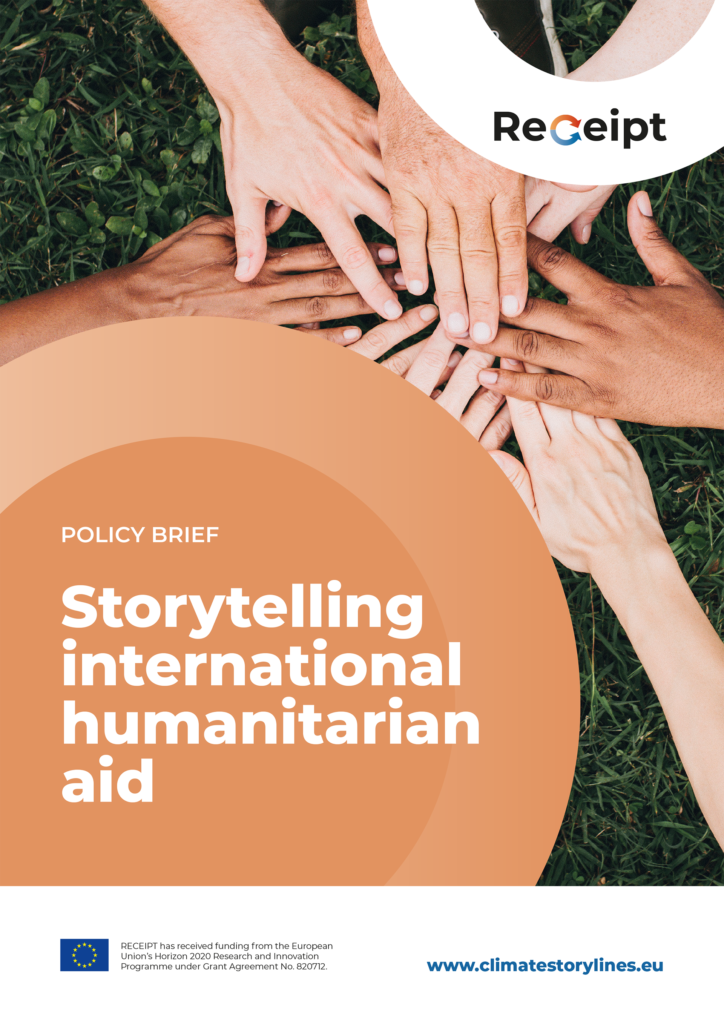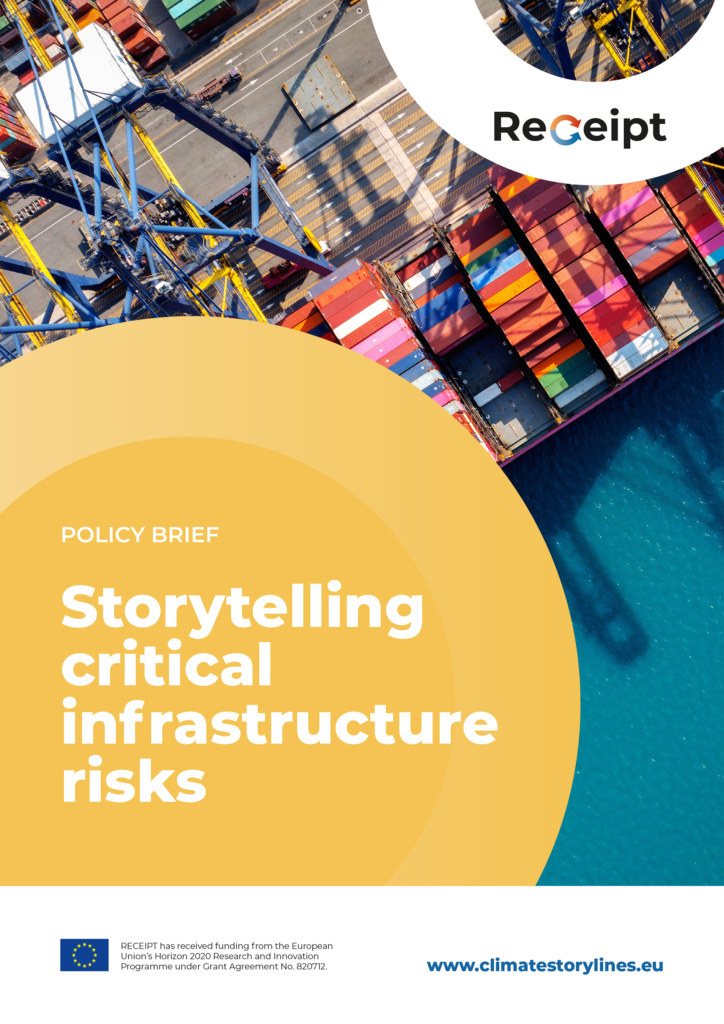Climate change is now an imminent reality, with the European Union facing increasing risks. Tropical cyclones, droughts and melting ice sheets in other parts of the world directly or indirectly impact Europe.
Over last four years, RECEIPT developed a risk assessment methodology to better understand, anticipate and prepare for climate risks. This new approach follows narratives, known as ‘storylines’, that recount a chain of climate-related events, stories, and data, unveiling cause-and-effect relationships over time.
RECEIPT researchers looked into climate risks outside Europe and their potential consequences for key European socio-economic sectors such as:
While analysing these cases, researchers merged the precision of forensic risk diagnostics with foresight techniques, to understand and anticipate and plan better for climate risks.
In hindsight, climate storylines offer a retrospective analysis of past extremes, their causes, and possible compound factors. By modifying these factors, it envisions alternative ways extreme events might have unfolded, and assess their amplified or attenuated impacts. In foresight, the analysis considers the impact of climate change on the likelihood and intensity of future extreme events, considering risk transmission, cascading effects, and spillovers of risk across regions and sectors.
Visit the resources page to find out more.
RECEIPT developed an online application that allows to explore storylines that show indirect impact of climate change on the European Union.
In addition to the Climate Impact Stories Visualiser, RECEIPT launched a Climate Event Impact quiz, a tool empowering the users to learn more about different climate change impacts around the globe, which directly or indirectly affect the European Union. After answering each question, users can explore each subject more in depth, through informative pop-ups that offer additional details and context.
RECEIPT researchers summarised actionable recommendations from the project for decision-makers in five policy briefs:

